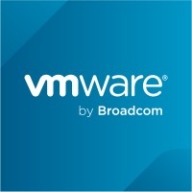

Zerto and VMware Live Recovery compete in the disaster recovery category. Zerto is recognized for its cost-effectiveness and support, whereas VMware Live Recovery wins over users with its comprehensive features, offering substantial value for the cost.
Features: Zerto provides continuous data protection, non-disruptive testing, and flexible recovery options. VMware Live Recovery boasts robust integration with VMware environments, automated failover, and a feature set more aligned with enterprise needs.
Room for Improvement: Zerto could improve its integration capabilities and the automation of failover processes. It may also lack in enterprise-specific features compared to VMware. VMware Live Recovery can benefit from reducing complexity in its initial setup and enhancing its support system. Its pricing could also be more accessible for smaller businesses.
Ease of Deployment and Customer Service: Zerto is easy to deploy with a user-friendly process and provides quick support. VMware Live Recovery might require a more complex setup but integrates well into existing VMware ecosystems, offering support that benefits organizations already using VMware products.
Pricing and ROI: Zerto is notable for lower setup costs and a rapid ROI, making it appealing for cost-conscious businesses. VMware Live Recovery, while more expensive initially, justifies its price with a feature-rich offering that provides long-term value, especially for businesses prioritizing advanced recovery options and integration.
Before, it was a huge cost. It was several thousand dollars to do a DR test, whereas now, I click a button.
It saves us a lot of time and gives us the ability to perform other DR plans for other systems.
The return on investment is evident, as Zerto saves more than 60 percent of time in various operations compared to the previous manual processes.
I have never had an issue that was not resolved, and I have never been in a situation where they did not respond.
I would give them a rating of ten because it represents the highest level of support based on the technical knowledge of the support team, response time, and effectiveness of the provided resolutions.
When I open a ticket, I usually get a call within an hour or two.
They are knowledgeable.
Our team has dedicated personnel for support who engage with the supporting teams.
The technical support from VMware is very good and operates based on a service level.
I would rate it a ten out of ten for scalability.
Customers need to follow good engineering practices for optimal product use.
By adding more hosts and installing VRAs on each, tasks can be efficiently managed.
I promptly delete the malfunctioning elements and set them up again to resume replication, ensuring stability.
The ease of use was so good with Zerto that they were able to migrate things much quicker.
It is very reliable.
For our test labs, dev labs, and production, it is very stable.
If I have 350 objects that I am protecting, I would like Zerto to be able to fire them up in one order, rather than having to manually bring them up in a sequence.
If the host has a lot of VMs on it, there may not always be enough time to relocate all of the VMs from a protection group standpoint to other hosts before the replication appliance that Zerto uses to manage that powers itself down.
If HPE Zerto Software has it built-in where we're going to vCenter and you click on it, it will build the VPG and indicate configuration requirements, that would be amazing.
It's important for the cost to be justified based on the features used in production.
I would like to see improved integration services with other solutions, such as SIEM management or security monitoring.
They follow their SOP, but they initially engage very low-level personnel who are not able to answer or resolve the issue, so they escalate or take a very long time to resolve the issue.
If you want a good-quality tool that is robust and does a good job for you, you have to pay a higher price to get that, and Zerto is no different.
However, it can become quite expensive when you start looking at the number of workloads you have in the environment and what you would like to do.
Zerto is easier to set up and use, and it's less expensive.
Previously, when acquiring a license for Ethiopian drug supply chains, the price was significantly high, especially after Broadcom joined VMware.
For cloud-based solutions, the cost seems quite pricey, so we stick to on-premises deployment.
We mostly prefer to recommend this to customers due to ease of use, abundant features, and support.
Zerto offers excellent technical support with responsive and helpful experts.
If we were attacked, I could revert to a backup from five seconds before the attack, and no one would know we were attacked.
The replication time and the minor amount of time it takes to sync a new server outside of any of my huge 40-terabyte boxes is ridiculously quick.
It is used for data replication between data centers and allows for quick response in times of failure, ensuring data availability.
If I talk about vCenter and the auto failover of the VMs, such as live migration, that is a very cool feature that we require in our environment because we have different data centers, and if some of the servers fail, they automatically failover and move the VM from one side to another.
The capability and the functionality of the features are very helpful for us.
| Product | Market Share (%) |
|---|---|
| HPE Zerto Software | 10.1% |
| VMware Live Recovery | 7.2% |
| Other | 82.7% |


| Company Size | Count |
|---|---|
| Small Business | 91 |
| Midsize Enterprise | 85 |
| Large Enterprise | 193 |
| Company Size | Count |
|---|---|
| Small Business | 36 |
| Midsize Enterprise | 13 |
| Large Enterprise | 39 |
Zerto is used for disaster recovery, business continuity, data migration, and ransomware recovery, providing continuous data protection and near real-time replication. Valued for ease of use, efficient failover processes, and versatile integration, it enhances organizational efficiency, reduces errors, and boosts productivity.
We monitor all Disaster Recovery (DR) Software reviews to prevent fraudulent reviews and keep review quality high. We do not post reviews by company employees or direct competitors. We validate each review for authenticity via cross-reference with LinkedIn, and personal follow-up with the reviewer when necessary.